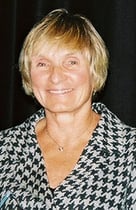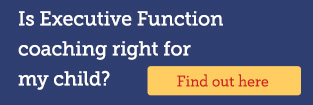This week, we have the pleasure of interviewing Dr. Janice Prochaska, president and CEO of Pro-Change  Behavior Systems, Inc., and a renowned researcher in the field of social work (please read her full bio below). She and her husband, Dr. James Prochaska, are leaders in the science of behavior change.
Behavior Systems, Inc., and a renowned researcher in the field of social work (please read her full bio below). She and her husband, Dr. James Prochaska, are leaders in the science of behavior change.
As Executive Function coaches, we apply the Prochaskas’ research about the way people change their habits in our work with students. Our method of coaching students to develop better study habits is based on the Transtheoretical Model (Prochaska & DiClemente, 1983; Prochaska, DiClemente, & Norcross, 1992). This model shows how people go through a series of stages in their thinking before they change their actions, and each particular stage requires different coaching strategies. We are honored that Dr. James Prochaska and Dr. Janice Prochaska have endorsed our adaptation of the model to working with students on their Executive Function and academic challenges.
JS: Can you give us the layman’s explanation of the Transtheoretical Model of behavior change?
JP: The Transtheoretical Model of Behavior Change (also known as the Stages of Change) is one of the most commonly used behavior change models. Originally based on a study of people who changed their behavior successfully on their own, the Transtheoretical Model (TTM) has been tested time and time again in over 35 years of research. It has now been applied to dozens of behaviors ranging from smoking cessation and making informed healthcare choices to depression prevention and taking medication consistently. TTM describes change as a process that unfolds over time in a series of five stages of readiness to change: Precontemplation (not ready), Contemplation (getting ready), Preparation (ready), Action (doing the new, healthy behavior), and Maintenance (keeping up the healthy behavior). The TTM tailors interventions to each particular stage of change rather than assuming all individuals are ready to take action. There are a variety of different processes or strategies used to facilitate transition between stages.
JS: In our academic coaching, often there is a disconnect between what parents would like to see (better organization of materials, better study habits, starting homework earlier, etc.) and what a student wants to do. How does the Transtheoretical Model of behavior change help explain this gap? What advice would you give parents who want to see their child change his or her approach to managing schoolwork?
JP: The Transtheoretical Model helps family systems understand that different members could be at different stages of change – the parents wanting their child in Action and the child perhaps being in Precontemplation or Contemplation. Beyond BookSmart works with families in different stages and brings them together.
JS: This is the time of year when some students who have been great at maintaining new habits, like limiting their social media use while working or getting all their homework done on time, tend to slump a bit and relapse into ineffective habits. How does the Stages of Change model explain and help manage this problem?
JP: The TTM focuses a great deal on relapse prevention and learning from relapse. Being prepared for complications, understanding a lapse is not a relapse, that distress precipitates relapse, practicing how to handle a relapse, and how learning translates into action are some of the lessons emphasized.
JS: What are some of the different ways the model is being applied?
JP: The TTM is presently being applied to healthy sleep habits, environmental sustainability, responsible drinking, chronic pain management, and juvenile justice (keeping youth out of trouble with the law).
JS: I never realized how wide the applications are for the TTM! How do you know it works?
JP: Over 35 years of research in randomized controlled trials has shown TTM to be effective in depression prevention, weight management, smoking cessation, stress management, and several other areas.
JS: Your work has helped improve the lives of countless individuals and families. Is there a particular application of the model that you, personally, find most meaningful?
JP: Being a social worker, I especially find most meaningful our work applying the TTM to bullying prevention, teen dating violence prevention, and domestic violence prevention.
JS: Thank you so much for speaking with us today. And on behalf of the families we work with, thanks also for your important work that continues to guide our academic coaching with students.
Given that many students are initially resistant to the idea of academic coaching or changing their behavior, using the Transtheoretical Model is a key way we gain rapport with students, and ultimately guide them to more effective behaviors, such as developing better study habits. Because our coaches are not forcing them to change their study habits, students feel more ownership and investment in the process. Over time, they begin to understand their own internal reasons for adopting new behaviors, which in turn results in greater accountability and greater confidence in their ability to influence outcomes. It's hard to imagine a better way to launch a young person into an increasingly complex and competitive world.
Do you know a student who might benefit from academic coaching? Click below to find out more about how we help students change their behavior and develop better study habits.About Dr. Prochaska:
President and CEO of Pro-Change, and one of the most published authors in the field of social work, Dr. Prochaska leads a team of Pro-Change experts in health behavior and organizational change. Her research on change using the Transtheoretical Model led to a contract with Electronic Data Systems and the formation of Pro-Change in 1997.
Her collaborations include applying the Model to cutting edge issues like simultaneously reducing multiple risk behaviors and enhancing multiple domains of well-being, healthy weight management in children and adults, preventing bullying, keeping individuals out of trouble with the law, helping people be proactive about their health and health care, enhancing financial well-being, and advancing careers with populations like women scientists.
Dr. Prochaska, who holds an adjunct faculty position at URI, earned her Master’s in Social Work from Wayne State University and her Ph.D. in Social Work Administration and Policy from Boston College. She serves on the Board of Directors for College Visions.

Jackie Stachel is the Public Relations Director for Beyond BookSmart. She joined the company in 2010 and is based in our Boston branch. Jackie leads Executive Function presentations for parent groups throughout Massachusetts and Rhode Island. Additionally, Jackie manages our You Tube channel as well as our company blog content through editing submissions, writing articles, and collaborating with professionals from outside Beyond BookSmart to create useful, informative content. Finally, Jackie coaches students supporting them in learning and developing Executive Functioning strategies.

